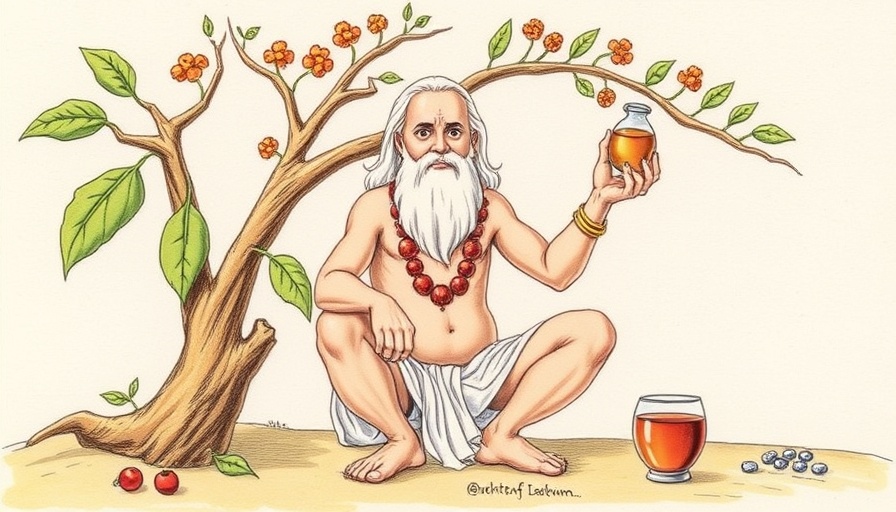
Understanding Sushruta's Ayurvedic Wisdom on Food Protection
The ancient text Sushruta Samhita's Kalpasthana Chapter 1, titled Annapānarakṣākalpa, focuses on methods of protecting against effects from poisoned foods and drinks, a critical concern even in today's world filled with fast food temptations. The teachings given by Dhañvañtari, revered as the father of Ayurveda, emphasize the importance of food safety right from the royal kitchen to our dining tables.
Food Safety Lessons from History
In this chapter, Sushruta warns that even a powerful king can fall prey to poisoning from those closest to him—including enemies and even his attendants—through cunning and deceit. This highlights the timeless relevance of food safety and integrity in the preparation and consumption of meals, warning us about hidden dangers that may exist in our diet. Breaching trust in food preparation can lead to grave consequences, reminding us to carefully vet the sources of our meals.
Modern Correlations: The Quest for Safe Eating
Today's fast-paced lifestyles often lead to unhealthy eating habits, with many opting for processed foods that may not take health into account. Like the royal kitchens described in Sushruta's text, we need to govern our personal ‘kitchens’—whether at home or dining out—with vigilance and care. Engaging kids in cooking can help them appreciate food preparation's significance and understand the importance of a wholesome diet, which is crucial for their overall well-being.
Holistic Wellness: Nutrition’s Role
Understanding food compatibility, as described in the Sushruta Samhita, connects directly to modern wellness and nutrition concepts. The idea of holistic nutrition—consuming foods that complement rather than counteract our health—establishes a strong foundation for preventing diseases. Parents today can teach their children the importance of balanced meals that avoid unhealthy combinations, echoing Sushruta's warnings about various types of “viruddha aahar” (incompatible foods).
Empowerment through Knowledge: Teaching Kids Healthy Eating
By studying Sushruta's teachings, parents can glean insights on preparing protective meals and understanding the consequences of certain food choices. Bringing the wisdom of Ayurveda into everyday life can empower families to adopt healthier eating habits, cultivate mindful eating practices, and foster positive attitudes towards nutrition. Resources like wellness workshops and cooking classes can further engage families in exploring these lessons.
Coping with Modern Food Dangers
Understanding poison detection methods as Sushruta advised can be translated into practical tips for today's parents. Teaching children about the risks of food poisoning and how to identify freshness in food—like checking for off odors and unusual colors—can instill critical safety habits. Introducing mindfulness practices while eating, which can include focusing on flavors and textures of wholesome ingredients, enriches their eating experience.
Conservative Practices for Conservative Eating
Precautions should be taken on all fronts—from educating children on safe food handling to advocating for clean eating habits. Encouraging families to establish a healthy relationship with food may reduce issues like stress and anxiety surrounding meals, paving the way for a holistic lifestyle.
By embracing Sushruta's age-old wisdom, families can navigate dietary choices with safety as a priority. Integrating modern nutritional insights with traditional wisdom allows us to foster a culture of wellness and resilience. As we learn and share these timeless lessons, we're not just protecting our bodies; we're nurturing our minds and spirits through the power of nutritious food.
Let’s Foster Healthy Families Together!
Incorporate family cooking nights, engage in wellness programs, and build a supportive community around healthy eating. It starts with small changes to lift your family's nutritional status and emotional well-being. Remember, healthy eating choices today set the stage for a thriving future. Let's make it a family project!
 Add Row
Add Row  Add
Add 




Write A Comment